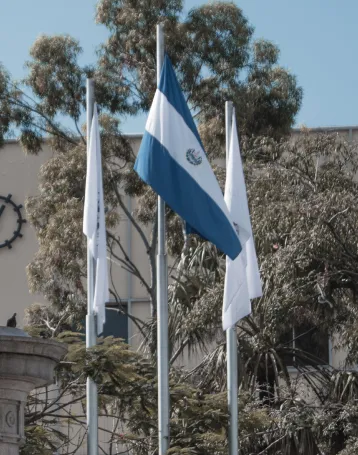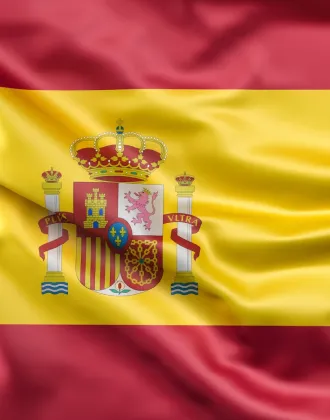
El Salvador Crypto License
If you are considering El Salvador as a jurisdiction for crypto activities – you need to register a company, develop a business plan and AML/KYC policies, apply for a crypto license in El Salvador, and comply with local laws
El Salvador adopted Bitcoin as legal tender in June 2021 and became the first country to officially recognize the digital currency at the national level.
The government’s rapid development of the cryptocurrency sector is supported by tax incentives and exemptions for companies with a cryptocurrency license in El Salvador. They are exempt from fees, taxes, and duties on digital assets, including capital gains and ordinary income.
There are two types of crypto licenses in El Salvador: the Bitcoin License, which is for bitcoin companies, and the DASP (Digital Asset Service Provider) License, which regulates digital asset service providers.
However, any other taxes and government fees can be paid with cryptocurrency. In addition, the process of obtaining a crypto license in El Salvador is not too difficult, and the government supports investors by providing loyal business regulations.

Find more information about the El Salvador Crypto License
Advantages of Obtaining a Crypto License in El Salvador
Early Adopter Advantage:
Being one of the first countries to establish a regulatory framework for cryptocurrencies in Latin America, El Salvador presents an opportunity for companies to establish themselves as early adopters in a potentially growing market. By obtaining a crypto license, companies can position themselves at the forefront of the crypto industry in the country.
Regulatory Clarity and Compliance:
Operating within a regulated framework provides companies with clarity and guidelines on how to navigate the cryptocurrency landscape in El Salvador. By obtaining a crypto license, companies can ensure that they comply with the legal requirements, including know-your-customer (KYC) and anti-money laundering (AML) regulations. This compliance can enhance trust and credibility among customers and partners.
Collaboration with Government Initiatives:
El Salvador has shown a commitment to promoting cryptocurrencies and blockchain technology. By obtaining a crypto license, companies can align themselves with the government’s initiatives and potentially collaborate on projects related to digital payments, financial inclusion, or blockchain-based solutions. Such collaborations can provide opportunities for joint ventures, research partnerships, or government contracts.
Market Expansion and International Opportunities:
El Salvador’s decision to embrace cryptocurrencies and establish a regulatory framework can attract international companies looking to expand their operations. By obtaining a crypto license, companies can enter the Salvadoran market and potentially explore regional opportunities in Central and South America. This expansion can lead to increased market reach and potential partnerships with local businesses.
Tax Exemption:
El Salvador offers tax benefits for crypto-related activities, including but not limited to: the nominal value and yields or income from digital assets will be exempt from all kinds of taxes. The capital gain or ordinary income obtained from the purchase and sale or any other means of transfer of digital assets will be exempt from any kind of taxation. Likewise, the issuers, certifiers and service providers of registered digital assets will enjoy all the above benefits with respect to the activity related to digital assets that they develop, being exempt from the Tax on the Transfer of Movable Goods and Provision of Services, Income Tax, Municipalities or any other taxation independent of their nature; they will also be exempt from the responsibility of withholding such taxes in case such obligation exists.
Access to a Crypto-Friendly Market:
El Salvador’s adoption of Bitcoin as legal tender and the crypto license create a crypto-friendly market environment. This can attract companies operating in the cryptocurrency space, such as cryptocurrency exchanges, wallet providers, payment processors, and blockchain startups. By obtaining a crypto license, companies can tap into this market and offer their services to the local population.
Crypto License Registration in El Salvador packages
Full set up of crypto company with office and accounting services.
- All services from the Advanced Package
- Revision of your business plan by a lawyer
- Provision of exclusive local proprietor and alternate compliance officers with direct employment agreement for the period of DASP license obtainment (up to 4 months)
- Complete AML registration before the Financial Investigation Unit
- Corporate account opening in a local conventional bank
- Corporate account opening in a European EMI (segregated B2B/B2C accounts, multicurrency accounts)
- Accounting legalization system, initial balance of the company, and issuance of corporate books by a certified auditor.
Registration of BTC Service Provider and Digital Asset Service Provider under the Full regulatory requirements.
- All services from the Basic Package
- Personalized AML/KYC Policy (up to 20 h of lawyer’s work)
- Provision of exclusive local proprietor and alternate compliance officers with direct employment agreement for the period of DASP license obtainment (up to 4 months)
- Assistance with registering the DASP license within the National Commission For Digital Assets (“NCDA”)
- Preparation of the internal procedural documents:
– Enterprise-wide Risk Assessment
– Business Continuity Policy
– InfoSec Policy
– Winding Down Policy
– Compliance Management Policy
– Risk Management Policy
– Safeguarding of Assets
– Code of Ethics
- Governmental fee of 5500 USD
- Set of corporate documents with an apostille and translation to English language
Registration of BTC Service Provider under the minimum regulatory requirements.
- Full turnkey company formation assistance
- Address of registration for 1 year
- Set of corporate documents in Spanish language
- Standard AML/KYC Policy (up to 5h of lawyer’s work)
- Assistance with share capital contribution
- Assistance with registering the BTC license within the National Commission For Digital Assets (“NCDA”)
- Acting as local agent for notification before the regulator for its BTC-related activities for 1 year.


Request more information about the Crypto License in El Salvador
Process and timeline for obtaining a crypto license in El Salvador
COLLECTION OF PRELIMINARY DOCUMENTS
Stage 1
Documents required:
- Preferred company name
- Passport copies of all shareholders (at least 2) and directors (notarized + apostilled)
- Address of residence confirmation (utility bill) from all directors and shareholders
- Power of attorney (notarized + apostilled)
- A business model of the company (brief description 1-2 pages)
REGISTRATION AND LICENSING PROCESS
Stage 2
- Company registration
- Preparation of the corporate documents
- Preparation of the license application documents
- Submission of license application to The National Commission for Digital Assets (“NCDA”)
CORPORATE ACCOUNT OPENING
Stage 3
*Done simultaneously with Stage 2
- Analysis of the most suitable Banks/EMIs, comparison of the risk appetite of the Bank in relation to the risk appetite of the Client based on previously prepared AML policies
- Collection of necessary documents from the Client side to initiate the process (flow of funds, source of wealth, description of the purpose of opening an account, key partners, company website, utility bill, etc.)
- Guiding the Client’s company through the entire process of opening an account
Requirements for a crypto license in El Salvador
Crypto companies operating in El Salvador must comply with certain requirements and standards, according to the Salvadoran Digital Assets Law “Ley de Emisión de Activos Digitales”:
- Register a legal entity in El Salvador and be registered with the National Commission of Digital Assets of El Salvador;
- There must be at least two shareholders in the company;
- Provide identification documents together with the residency proof for all board members and shareholders;
- Provide a business plan that demonstrates the ability to offer digital services;
- Provide a detailed description of the company’s organizational structure, including names, positions, and specific functions of employees to ensure clarity and efficiency of internal work processes;
- Implement cybersecurity standards for the storage and handling of digital assets;
- Maintain financial records and disclose information about company operations, including ownership and shareholder information, as appropriate;
- Comply with all regulations and requirements related to user and investor protection, including risk disclosure and refund policies;
- Cooperate with regulatory authorities and provide all necessary reporting;
- Companies must have systems in place to prevent, detect and disclose risks of financial crime, including money laundering and terrorist financing, as part of AML/KYC compliance.
Registration of a crypto company in El Salvador
CHOOSING THE RIGHT ORGANIZATIONAL STRUCTURE
Step 1
Before you start creating a company, you need to decide on the most suitable type of organizational structure. A limited liability company is the most popular type of company in El Salvador.
Gofaizen & Sherle will help you understand the details and choose the right structure for your business based on your needs.
CHOOSING A COMPANY NAME
Step 2
You need to decide on a company name and book it with the Commercial Registry of El Salvador.
PREPARATION OF DOCUMENTS
Step 3
Once the name of your company is registered, you can proceed to the preparation of the notarized documents of your company: copies of passports of the board of directors, proof of physical address, etc.
For successful company registration, you can consult Gofaizen & Sherle for a complete list of documents.
APPLICATION FOR REGISTRATION
Step 4
After the stage of preparing all required documents and notarizing them, the next step is to apply for company registration. The application must be submitted to the appropriate authority responsible for the registration of companies, the Commercial Registry of El Salvador.
After applying, it will be reviewed by the competent authorities, and if so, the company will be registered and you will be issued an official certificate of registration, confirming its legal status.
OPENING OF A CORPORATE ACCOUNT
Step 5
Parallel to the registration, you need to open a bank account for the company. To complete the company registration, you need to contribute at least 5% of the share capital (required share capital is $2,000).
Most banks in El Salvador require you to be present in person to open a corporate account. However, at some local banks, the process can be done remotely or through a representative.
Gofaizen & Sherle will work with you to facilitate the account opening process, provide the necessary guidelines and provide details on requirements and procedures. We accompany you every step of the way to ensure a successful corporate bank account opening without your physical presence.
ADDITIONAL REGISTRATION WITH THE PUBLIC AUTHORITIES
Step 6
Once the registration is approved, you have to go to the Hacienda (tax authority), the Salvadoran Social Security Institute, and the Ministry of Labor to register the company with the relevant authorities, as required by Salvadoran law.
Moreover, you will have 15 days after approving the registration of the company to register with the Ministerio de Hacienda (Ministry of Finance)to obtain the Número de Registro del Contribuyente (RNC) and Número de Identificación Tributaria (NIT).
OBTAINING A CRYPTO LICENSE IN EL SALVADOR
Step 7
- Obtaining a Bitcoin license in El Salvador from RPSBTC BCR
According to the Bitcoin law, companies or individuals who provide services related to BTC must register at the Registry of BTC service providers at the Central Reserve Bank.
You need to go through the registration procedures and obtain Certificates of Registration. Once registered, the company will fall under the regulation of the SSF and FIU supervisory authorities, ensuring compliance with the rules for the prevention of terrorist financing and money laundering in El Salvador.
- Obtaining a DASP license in El Salvador in RPSAD at CNAD
Under the new Digital Asset Issuance Act, registration of service providers, asset issuers, and certifying entities is handled by the National Commission on Digital Assets.
If you plan to provide digital asset services in El Salvador, your company must be registered with the RPSAD.
Overview of Crypto Regulation in El Salvador
| Project time frames | 3 to 5 months |
| State fee for application | 0$ |
| Required share capital | 2000$ |
| Corporate income tax | 0% (Crypto companies are tax exempt, while for other common types of companies tax rate of 30% is applicable |
| Annual supervision fee | 0$ |
| Local staff member | Not required, recomended |
| Physical office | Not required, recomended |
| Accounting audit | Not required |
| Sustainability | Sustainable |
| Bank account options | Some European EMIs, Midshore EMIs |
Regulation of cryptocurrency activity in El Salvador
Before June 9, 2021, there was no direct regulation of crypto-assets in El Salvador. However, El Salvadorans were able to use them as a private payment method.
Cryptocurrency assets were not classified as a regulated activity under the Financial System Oversight and Regulation Act. The Financial Inclusion Facilitation Act also excluded from its regulation private ecosystems with a ledger allowing payment for goods or services if it was agreed upon by two parties and used within a closed ecosystem. A 2017 statement from the Central Bank of El Salvador (BCR) mentioned that crypto assets are high-risk assets that should be used at one’s own risk.
But in June 2021, the status of cryptocurrencies in El Salvador changed dramatically. The country’s parliament recognized Bitcoin as a legal tender. This move makes El Salvador the first state to officially accept cryptocurrency as its main currency, along with the U.S. dollar. The U.S. dollar remains the country’s base currency and is used for accounting purposes, but Bitcoin acquires legal tender status alongside it.
On August 27, 2021, the law was published in the Official Gazette of El Salvador, and it became effective on September 7, 2021. This led to the obligation for all Salvadoran businesses to accept Bitcoin as a means of payment, to pay taxes in Bitcoin, and allowed the government to make subsidy payments in digital currency. In addition, El Salvador has deployed a network of 200 Bitcoin ATMs, introduced an innovative digital Bitcoin wallet application called Chivo, and given every citizen $30 in Bitcoin as a start-up incentive. These measures represent a significant step forward in the use and implementation of Bitcoin in El Salvador’s economic life.
he Digital Assets Bill was introduced in 2022. According to the information provided by the country’s Congress, the decree aims to create a legislative framework that will provide legal clarity for the transfer of ownership of digital assets used in public offerings in El Salvador.
The Ley de Emisión de Activos Digitales (Digital Assets Law) was signed into law by the president of El Salvador on November 17, 2022. It introduced a series of new rules for digital asset providers that meet the traditional requirements for financial institutions. At the same time, cryptocurrency companies are defined as a firm that provides exchange, storage of cryptocurrency, and maintenance of cryptocurrencies to third parties.
Bitcoin Act compliance by service providers is overseen by the Financial System Authority (SSF). The SFS has issued a series of rules regulating the cryptocurrency business. These rules include obtaining a crypto license in El Salvador, implementing and complying with AML/KYC policies, financial reporting requirements, customer asset protection, and cybersecurity procedures, customer account and transaction accounting, transaction limit monitoring, etc.
Tax Regime
Companies registered with the Registry of Digital Asset Service Providers (RPSAD) in El Salvador enjoy the following tax advantages:
- Exemption from all types of fees, taxes, duties, and assessments on the face value and yield of digital assets.
- Exemption from taxes on capital gains and the ordinary income derived from the purchase, sale, or transfer of digital assets.
- Exemption from goods and services transfer tax, income tax, and other tax obligations for issuers, certifiers, and service providers of digital assets.
- RPSAD-registered companies are also exempt from withholding responsibility for such taxes, if applicable.
These tax incentives and exemptions facilitate the development of digital asset activities in El Salvador and provide a favorable environment for companies registered with RPSAD.

Conclusion
In conclusion, El Salvador is an attractive commercial jurisdiction with good economic growth and opportunities for foreign investment. Although registering a business in this country may not be the cheapest, there are certain advantages, including the ability to specify cryptocurrency activities and to obtain a DASP license in El Salvador or a Bitcoin license in El Salvador.
Of particular interest is the fact that El Salvador has become the first state to officially recognize Bitcoin as a legal tender. This creates new opportunities for businesses related to cryptocurrencies and opens the way for innovation in this field.
If you are interested in the regulation of cryptocurrency transactions in El Salvador, it is recommended to contact the experts of Gofaizen & Sherle, who can provide you with the necessary information and advice on the subject or provide you with a comprehensive solution with the guaranteed result of registering your cryptocurrency company in El Salvador.
FAQ about crypto license in El Salvador
What is a crypto license in El Salvador?
A crypto license in El Salvador is a state license for companies legally working with cryptocurrencies. It is issued by the Central Reserve Bank (BCR) and ensures legitimate activities. Companies must comply with anti-money laundering regulations and ensure the security of customer data.
How do I get a crypto license in El Salvador?
A Crypto License in El Salvador requires a minimum of two partners and the presentation of a passport of a legal representative. All required documents must be notarized or legalized at the Salvadoran consulate. Having a local director and agent can make it easier to obtain a cryptocurrency license in a particular state.
How long does it take to obtain a crypto license in El Salvador?
It takes up to 20 business days to obtain a crypto license in El Salvador, provided that complete and required information is provided in the application. If the request is incomplete, the applicant has 5 business days to fill in the missing information.
How much does it cost to obtain a crypto license in El Salvador?
Getting a crypto license in El Salvador includes an initial registration state fee of $5,475 and a renewal state fee of $3,650 per year. Additional registration certification costs $50 or the equivalent in bitcoins.
Why did El Salvador make Bitcoin a legal tender?
El Salvador has made bitcoin a legal tender because the country has no currency of its own and all payment transactions are in U.S. dollars. The recognition of Bitcoin as an official instrument will make remittances easier for citizens and companies, especially those working abroad. This strategic decision is aimed at developing El Salvador’s economy and opening new opportunities for the country.
Explore other Crypto Licences
Connect with our experts
Our experts will tell you how to do it as quickly and easily as possible.
By clicking the button, I confirm that I have read the privacy policy and consent to the collection and processing of my personal data in accordance with the GDPR rules.
to our news & insights

















